
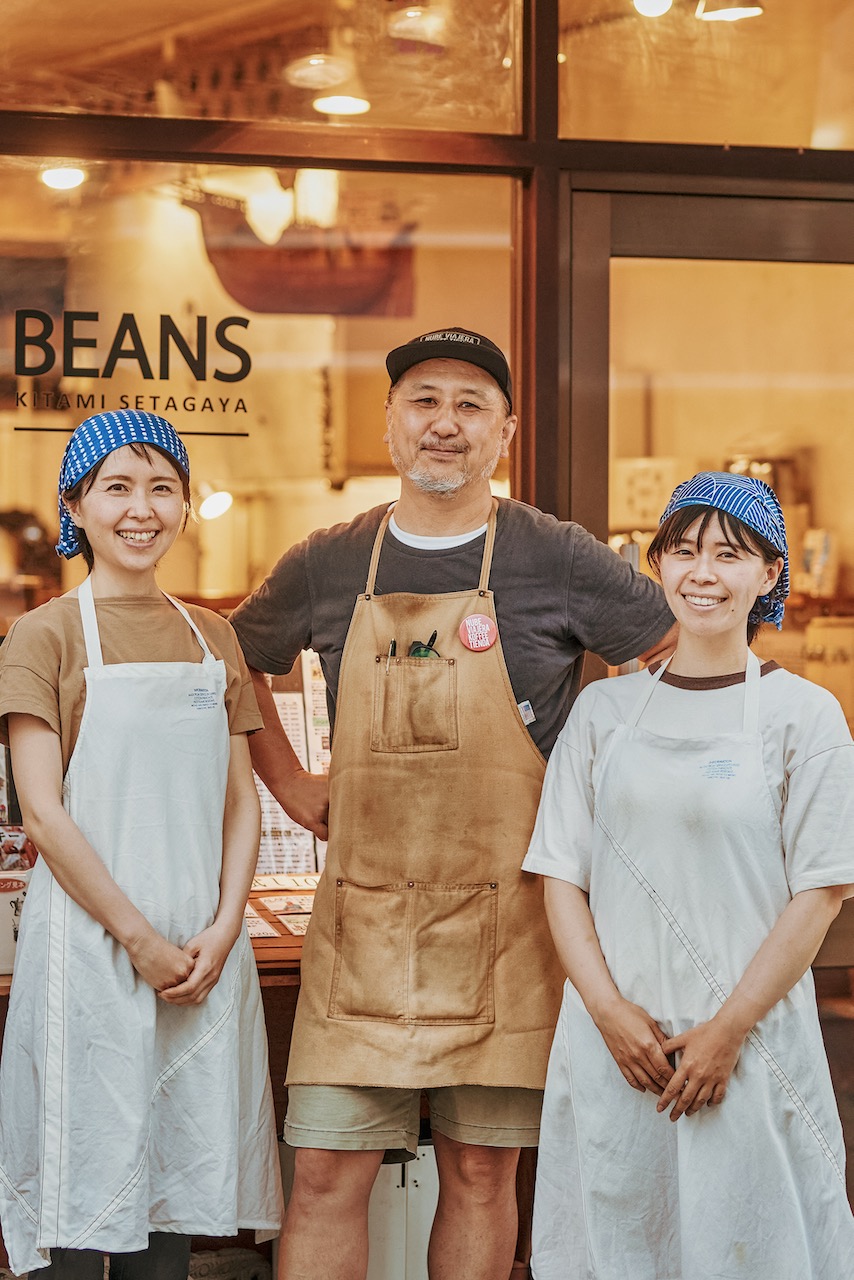
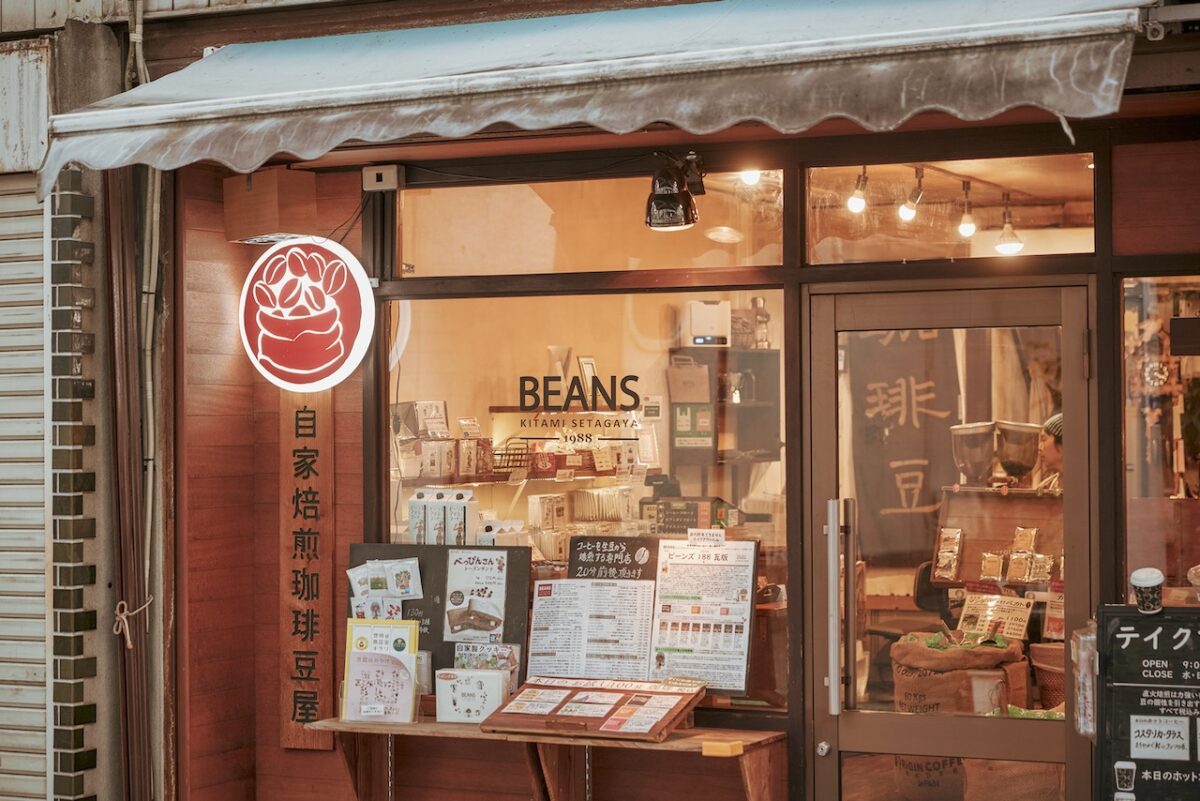
A less than 30-minute train ride from Tokyo’s Shibuya station, Kitami is located in the western outskirts of Setagaya Ward. While being just across the river from the upscale residential area of Seijo, Kitami still retains its natural beauty and human touch. In this peaceful neighborhood, where you can find unmanned vegetable stands on side streets, there is a roastery long committed to custom roasting: Beans Kitami, founded in 1988. On weekends and holidays, customers wait for their orders for up to three hours. And that’s just business as usual at Beans Kitami.
The shop is currently run by three people: sisters Norie Shimizu and Sayuri Shimizu, and the so-called “big brother” Nobuto Miyashita. Through interviews, we set out to find out how they became fascinated by custom roasting, and the beliefs they hold as they continue to preserve the shop’s unique style.
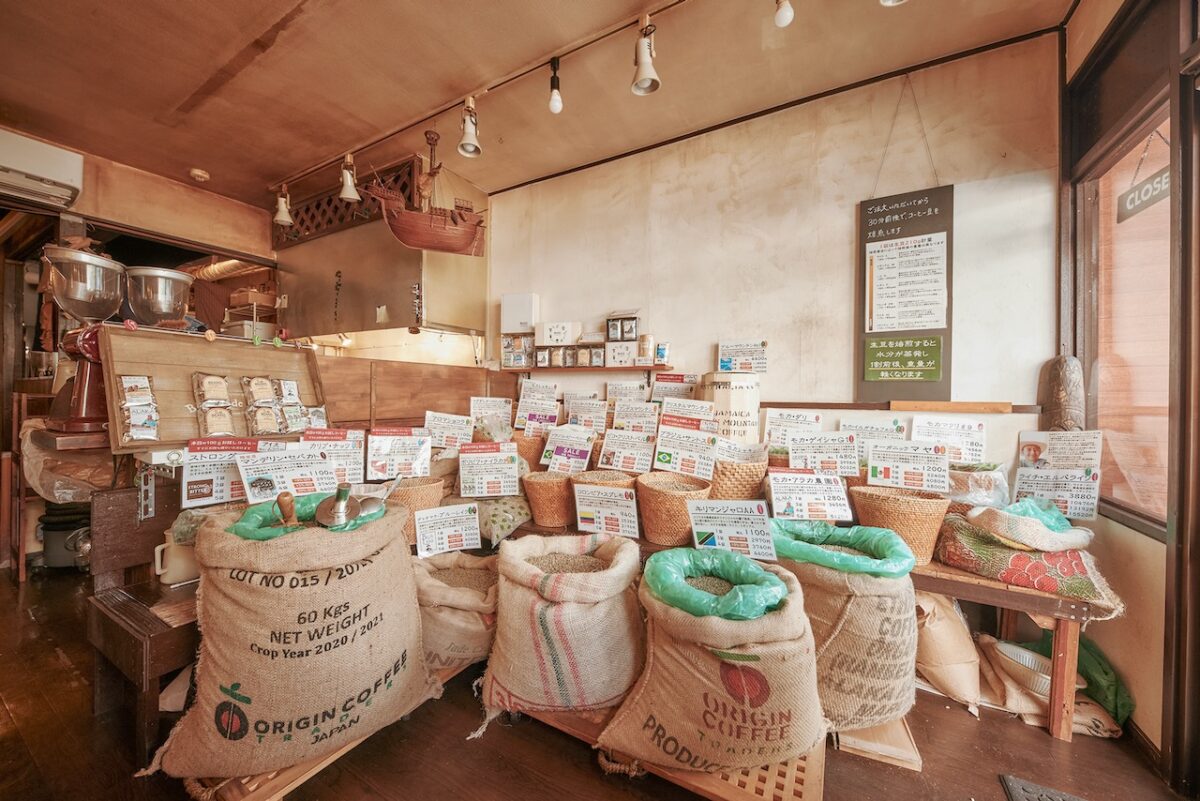
Open Specialty Shop
In front of Kitami Station, there is a one-kilometer-long shopping street dotted with more than 100 shops. This is where locals gather, home to a mix of large supermarkets, chain shops, and old-fashioned mom-and-pop stores. In one corner stands Beans Kitami, with its sign saying “Roastery & Coffee Bean Shop.”
Beans is one of the few coffee bean specialty shops in Japan that roast coffee made-to-order. Still, the store doesn’t have the feel of an old-fashioned shop run by a stubborn owner. Once you open the retro, wooden door, you’ll see bags of green coffee crammed into rows. “There are so many beans I’d like to get and sell to our customers, and that’s why they’re overflowing. I’ve tried to restrain my urge lately,” says Norie.
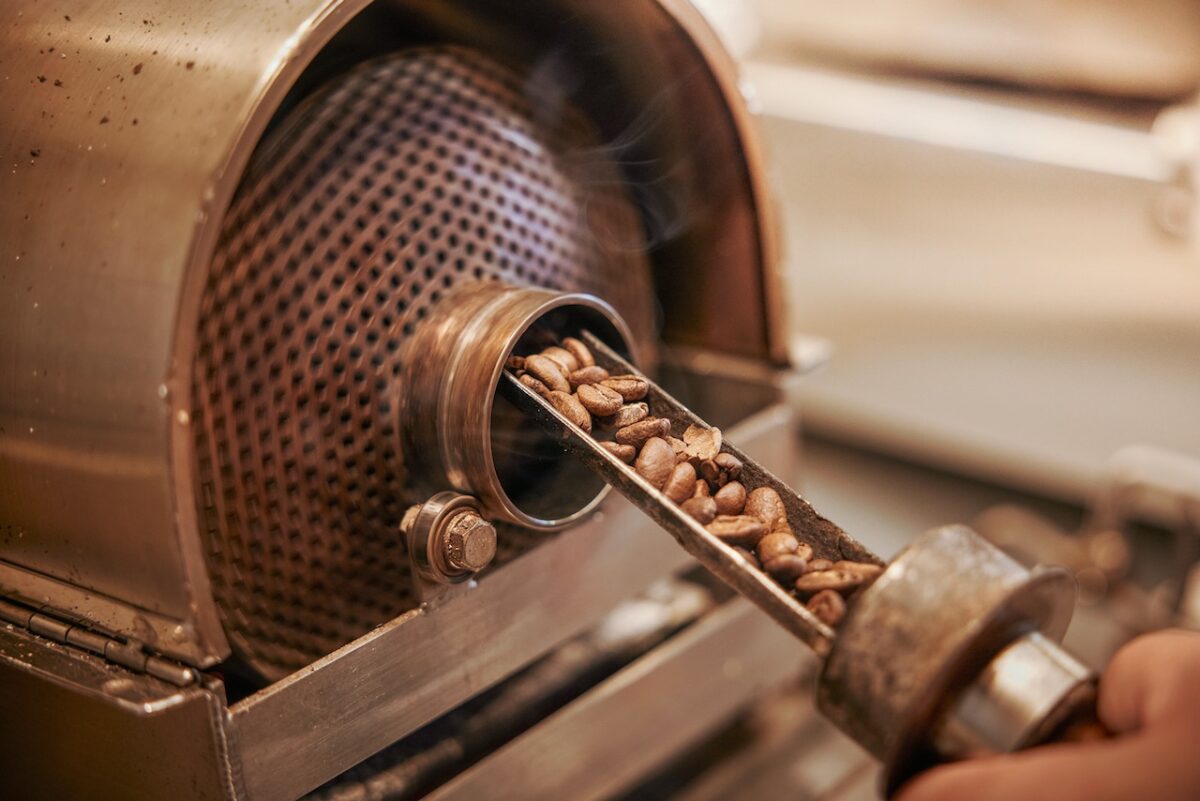
Coffees at Beans are characterized by their powerful aroma and depth of taste. These are a product of serving coffee beans freshly roasted in a small, direct-fire coffee roaster.
“When I get on the train with roasted beans, their aroma is so strong that passengers around me go, ‘I smell something roasty.’ Both my family and friends are surprised by how the aroma wafts across a room when they brew coffee with our beans,” says Miyashita.
Beans offers 40 to 50 kinds of coffee. They have a full range of beans from diverse origins, tastes, and aromas to meet every possible need. From eight roasting profiles, the shop chooses one that fits customers’ preferences. Roasting begins after their order.
“Coffee is a recreational drink. So we want people to enjoy it with their favorite roasting, favorite grinding method, and favorite brewing equipment. The beauty of custom roasting is that you can expand and explore the scope of your taste as if you’re traveling. In fact, some customers were so fascinated by this style that they ended up going through all our roasting profiles with a single variety,” says Sayuri.
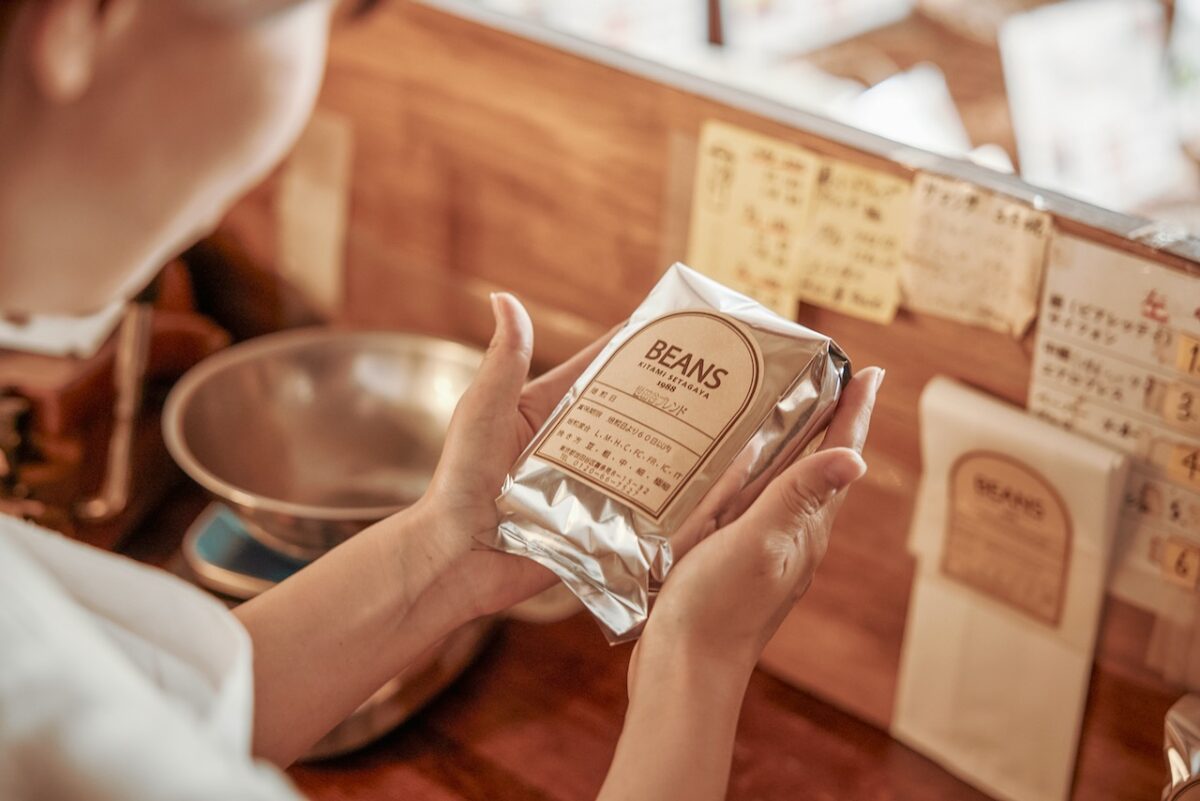
Since Beans offers so many choices of green coffee, the staff need not only knowledge of roasting but also the ability to listen to customers’ preferences in detail and make recommendations to match them. The three members at Beans, all well-versed in coffee origins, handle multiple tasks from customer service to roasting, rather than set clear boundaries between their roles. This allows customers to ask for advice on coffee whenever they visit Beans.
“Let’s say customers ask for ‘a nutty taste.’ We try to dig deeper and figure out whether they mean almond, hazelnuts or pistachio. Only then can we suggest what beans and roasting method to use,” says Norie.
The experience and trust acquired in this fashion have formed the foundation of Beans. Repeat customers make up around 90% of the orders. Some customers have been coming to the shop since its opening. There is also a hardcore aficionado who discreetly measures roasting time with a stopwatch.
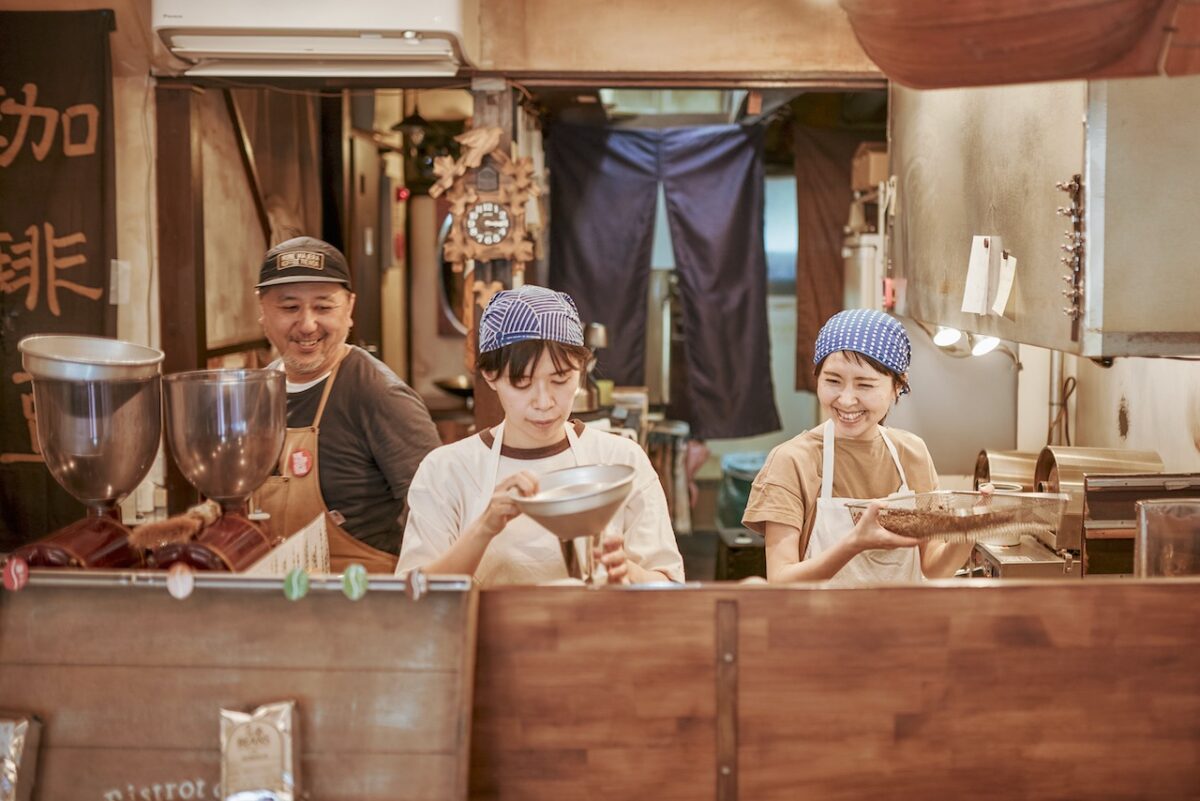
The shop also has a neighborhood coffee shop side to it, with children living nearby coming to buy their products on the first errand of their life. The face of the shop is Miyashita, the oldest and beloved character who cracks witty jokes in fluent English. The sisters Norie and Sayuri, with their caring neighborhood big sister vibes, also draw in customers who drop in on a whim.
“You can use our shop just as a grandmother buys cabbage at a greengrocer or tofu at a tofu shop. We’re as committed to the taste of our products as any other, but we don’t try to be cool. That’s what makes us attractive,” says Miyashita.

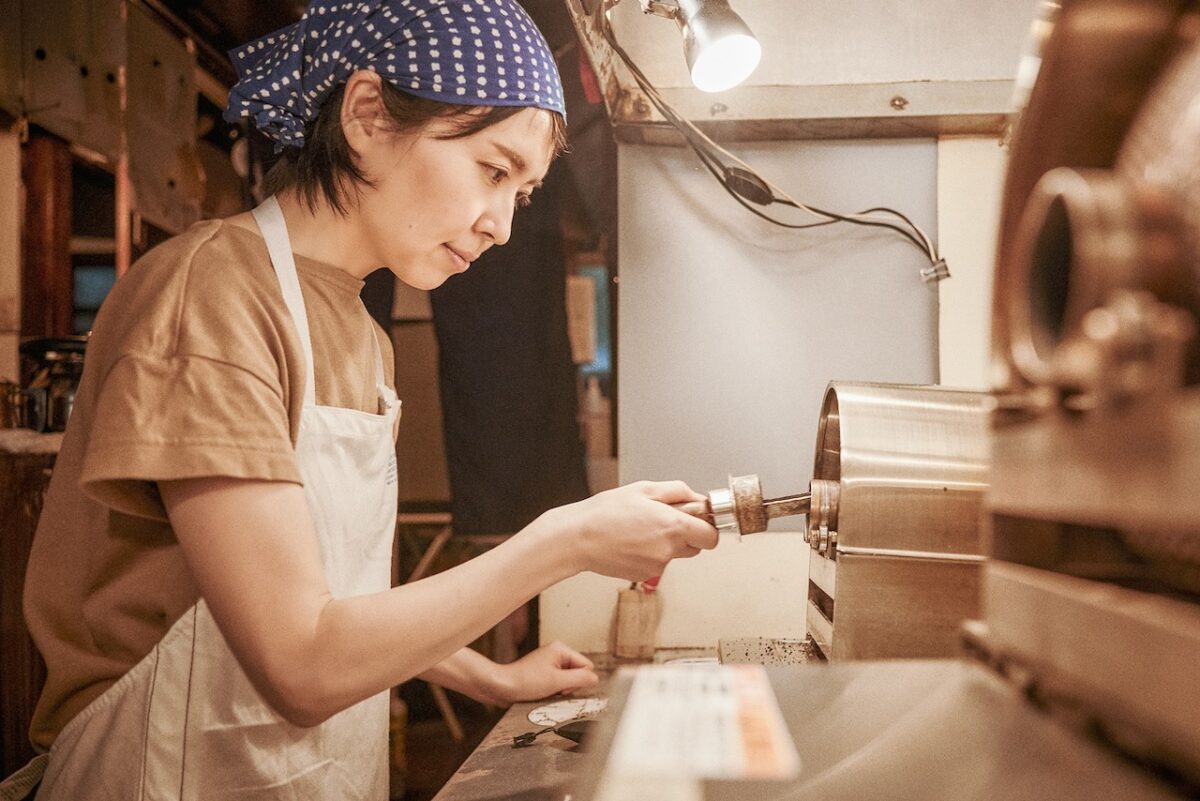
Steady work behind passion
Custom roasting is a tradition at Beans that has been handed down from the founder, who was the previous owner. Norie, the longest-serving employee, was one of the customers who were fascinated by Beans’ unique style. She first encountered Beans in 2002 when she started university. After leaving her hometown in Nagano and moving to Tokyo, she was introduced to Beans by her older sister, who was living with her at the time.
“I was impressed with how the staff at Beans roasted coffee just for me after my order. I wanted to learn that technique myself and give customers the excitement I felt. I still remember how I felt at that moment,” says Norie.
The month after her first visit to the shop, Norie saw an advert for a trainee position at Beans. She made up her mind to be one. When the owner saw the blonde girl in a worn-out T-shirt and jeans, he almost turned her away, saying, “We don’t hire students.” However, she persisted and said, “Please, I’ll do my best.” She got the position and started to come in once a week.
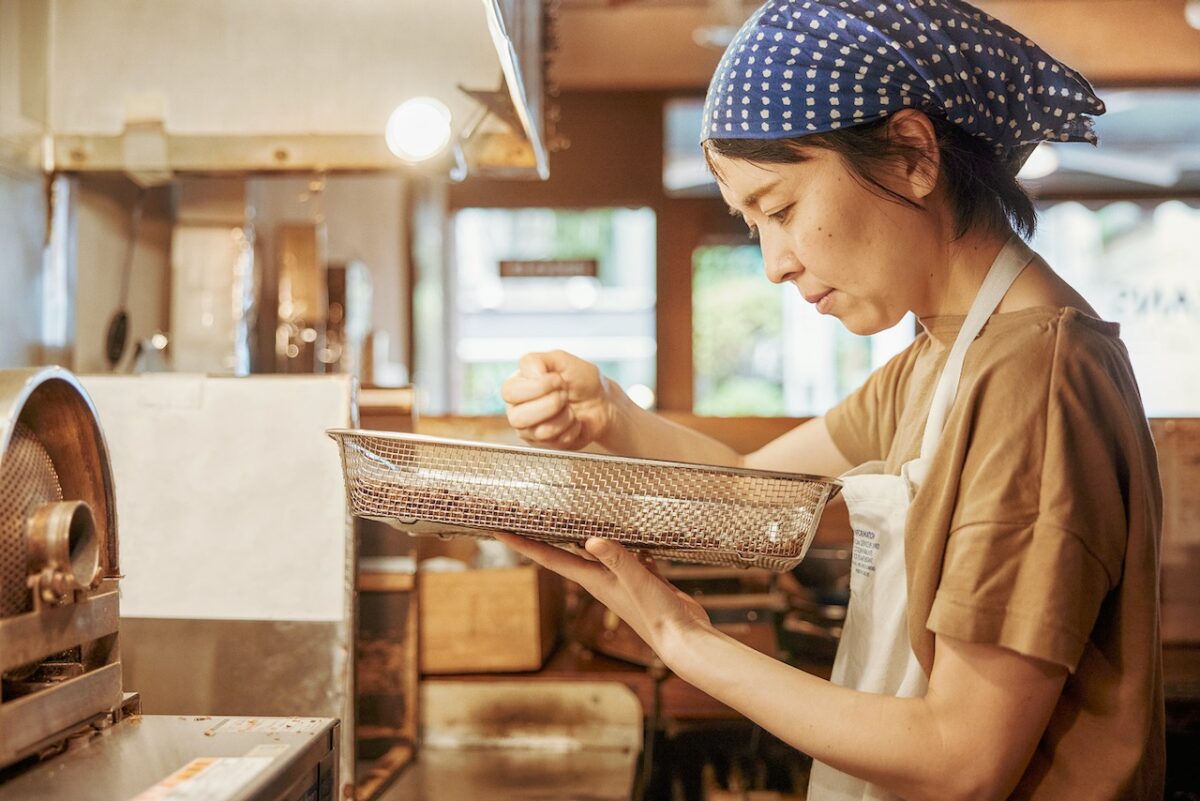
Though initially she was underestimated as a quitter, Norie doggedly went about her job, picking out coffee by hand. She went on to fill a gap left open by part-timers who quit one after another. Why did she not give up the humdrum job?
“I looked at the job the same as washing dishes or cleaning at a restaurant, so I wasn’t frustrated in particular. I went about my job trying to find a more efficient way to do it. I think I was able to hang in there because I knew that the time-consuming work I did led to the value of our products that in turn brought joy and healing to our customers,” says Norie.
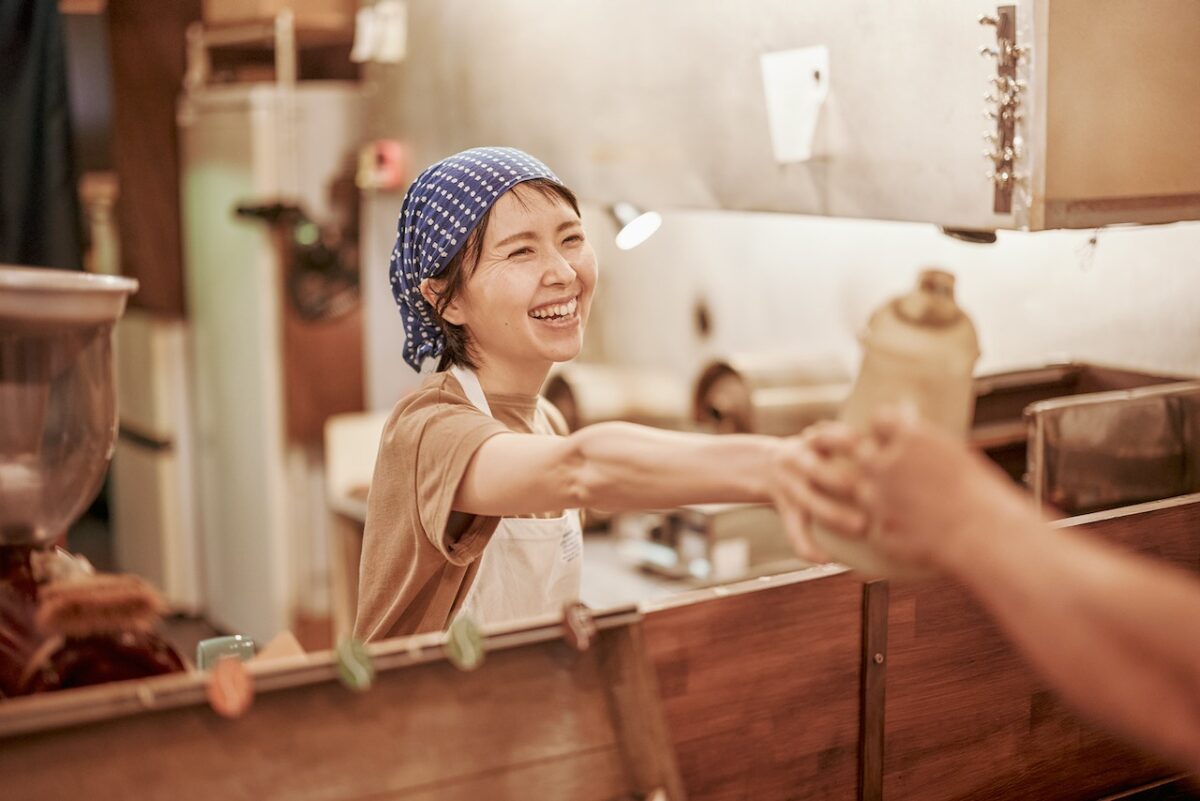
Norie continued to work at Beans until she graduated from university. Although she got a job at another company, she eventually returned to her old home of Beans.
“When I fell mentally and physically ill after receiving a harsh lesson in society, the owner invited me to come back, and I did so. Then customers said to me, ‘Welcome back.’ That’s when I knew in my heart that this is where I belong,” says Norie.
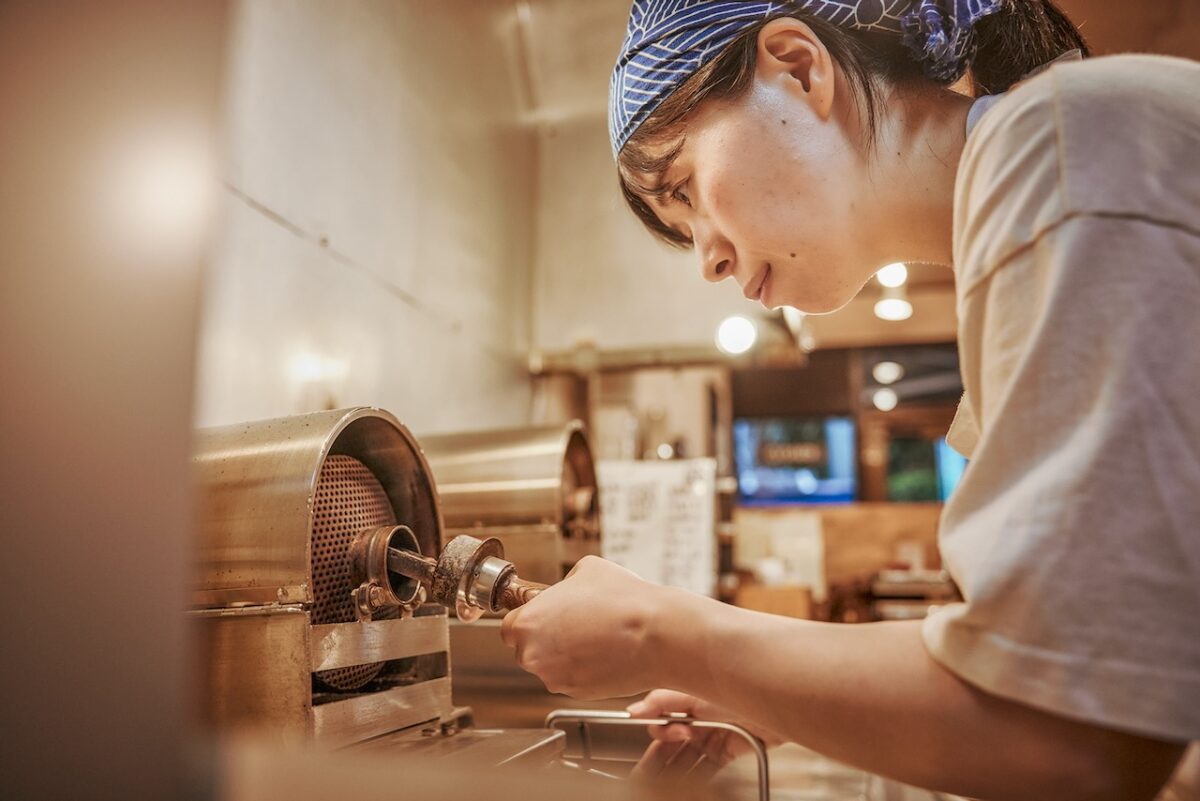
Norie became an employee of Beans, a company with a stance that one earns their keep. She started selling their products online and took part in events, trying to carve out a place for herself. She was then joined by Sayuri, “just the right partner,” as she describes, who was five years her junior and a university student.
“All I was interested in at the time was riding a motorcycle,” says Sayuri. “I got my license behind my parents’ back. But as I helped out my sister, I became fascinated by the depth of roasting. Pulling up the drum just three seconds late, and the coffee turned out with a burnt taste or lacked body. I learned that even if I roasted exactly according to a predetermined profile, I couldn’t get what I was looking for. I was very frustrated. Over time, that frustration fueled my eagerness to learn, and I became absorbed in the world of coffee.”

Contrary to her desire to roast coffee, there was a period where Sayuri had to spend her days doing tasks such as handpicking, weighing, and bagging. It took her five years to fully engage in roasting. But Sayuri says, “That grunt work and frustration formed my backbone,”
“Roasting a small batch at a time is one of our selling points. So it’s not very unusual that we roast over 100 times a day. I have strained my nerves to do my best job every single time. Now, I’m able to figure out the moment aroma spreads out from coffee beans. It’s a craft I’ve gained through sheer effort.”
It is such continuous improvement that makes Beans what it is today, an attractive, homely shop that’s been loved for many years. Quite a few staff members came and went, their hopes and aspirations gradually worn thin by the repetitive unglamorous work.

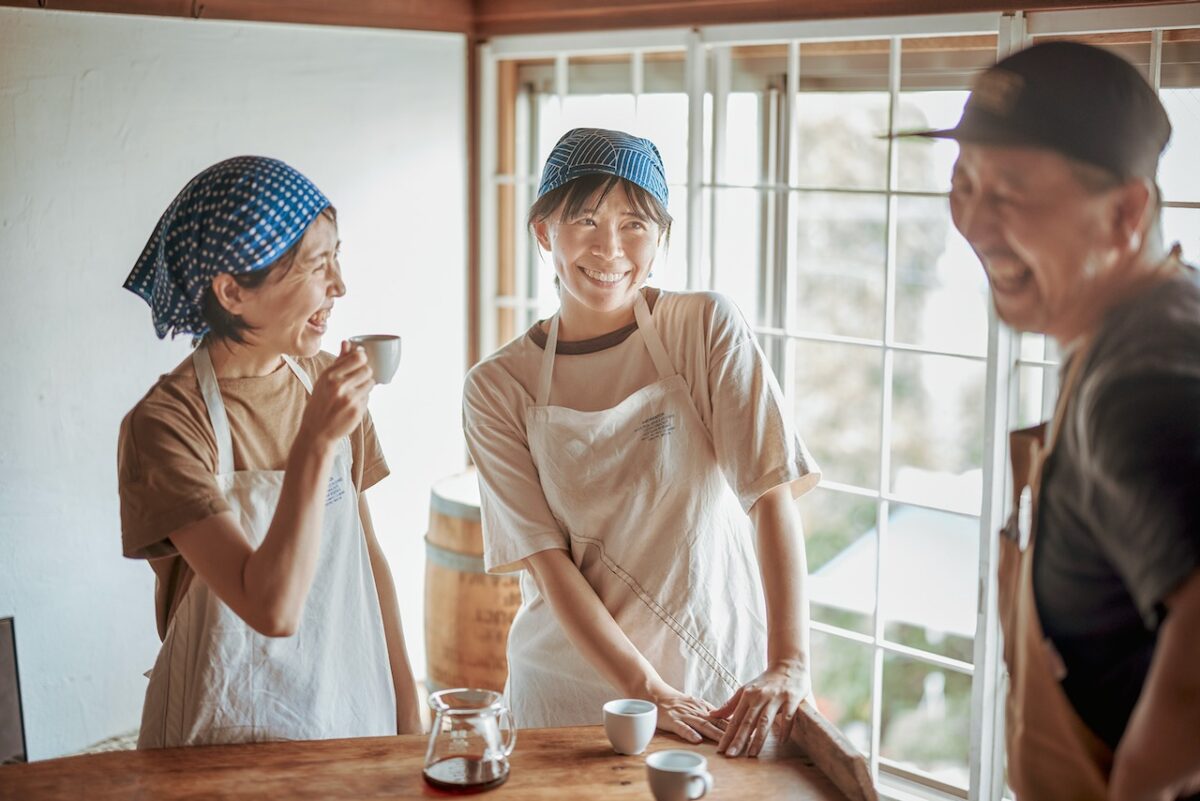
Succession and development
Growing up in a family that ran a furniture trading company and real estate firm, Norie and Sayuri were instilled with a family motto from an early age: “A merchant’s child should be a merchant.” Although Sayuri also left Beans once and worked at another company, she eventually returned to Beans after realizing that she wasn’t cut out to be an office worker. Rather than being told what to do, she prefers to think and act of her own accord.
Right around the time Sayuri came back to Beans, Miyashita reached out to Norie, saying he, too, wanted to join Beans to study coffee. Thus, Miyashita started devoting his weekends to coffee while working another job on weekdays.
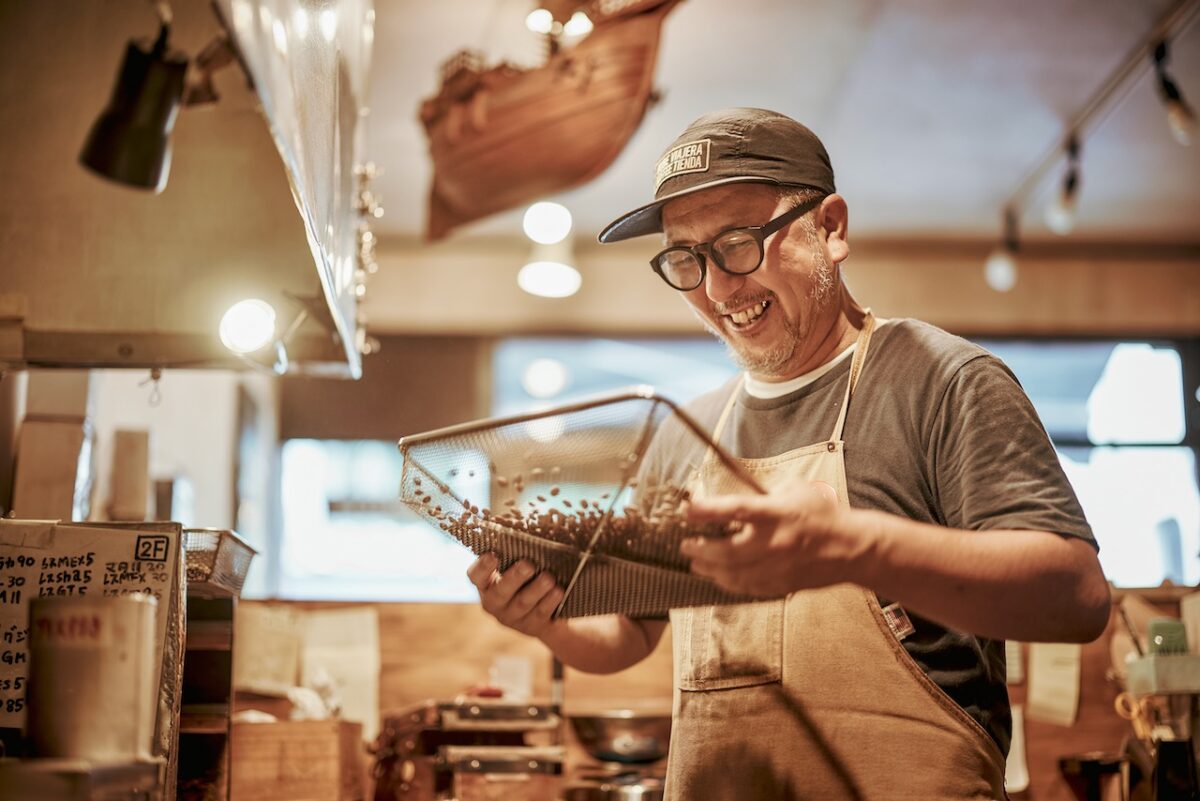
“Compared with all other coffees I’d had, coffees at Beans had exceptionally rich aromas. Over time, I started to feel the urge to try my hands at roasting, too. But I was told, ‘We can’t hire you full-time.’ Still, I was grateful just to be able to learn about coffee even if only on weekends. You only live once, and I wanted to do what I wanted to do. I think that was one of the most decisive moments in my life,” says Miyashita.
Miyashita then suddenly quit his day job and decided to focus on Beans. He received a Beans-style harsh lesson from Norie and Sayuri, who are over 12 years younger than him: “We are different from a big company where you have a lot of benefits and get paid while on sick leave. You have to earn your own salary.” But he was not discouraged. He planned a new morning service at a café they used to run, and made it into reality with the sisters’ cooperation.
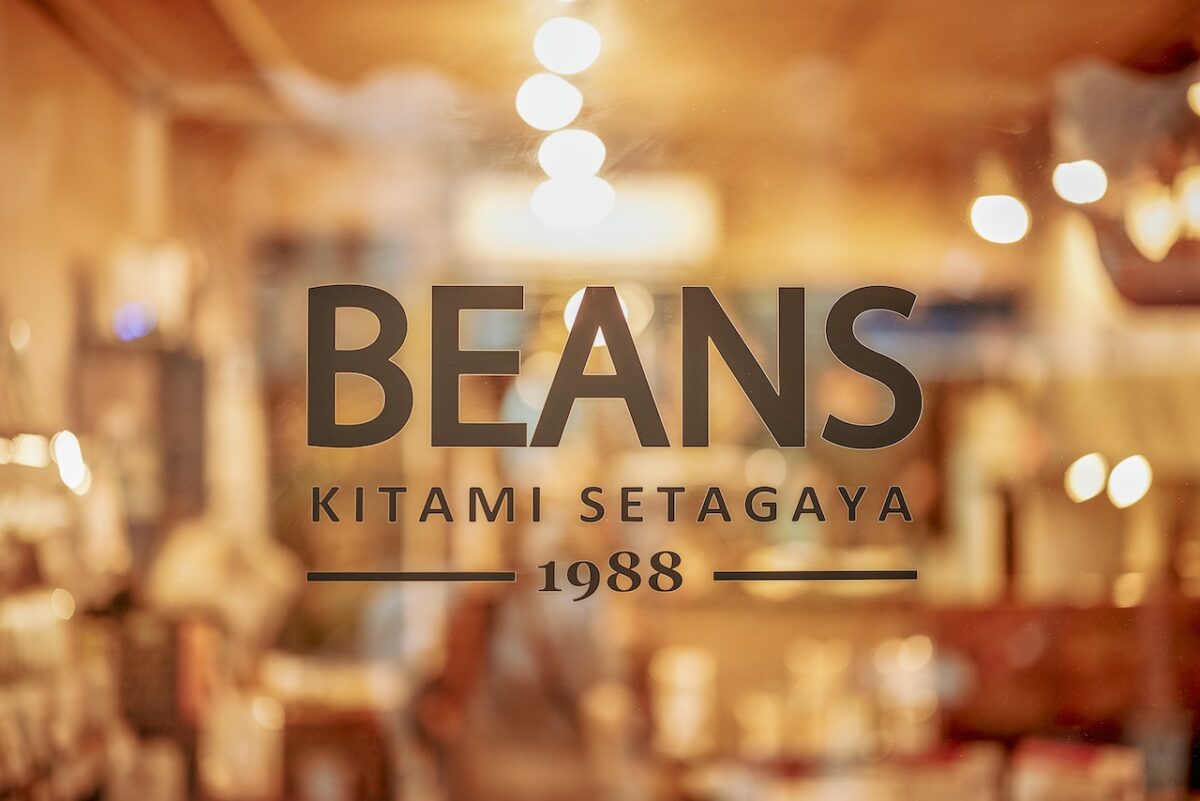
Norie was 31 years old at the time, and Sayuri 26. Her father had once told them, “If you don’t succeed in Tokyo by the age of 30, come back home.” They had made up their mind to not rely financially on their parents when they started business. So they did as much DIY as possible when they renovated the second floor of Beans and opened a café. They sought ways to grow the business while preserving its character, such as by putting together detailed profiles so that all three of them could produce the same flavor. Then the three of them founded a company in 2014, taking over Beans from the previous owner and its sign.
The first turning point came in 2018-2019 when Norie and Sayuri gave birth. They decided to put the café on hold and focus on roasting so that they could juggle equally between running the business and being mothers.
Then 2020 marked the second turning point. As they made connections with other businesses within the industry and expanded their horizons, they had an encounter with low-temperature roasting, which had an allure not found in Beans.
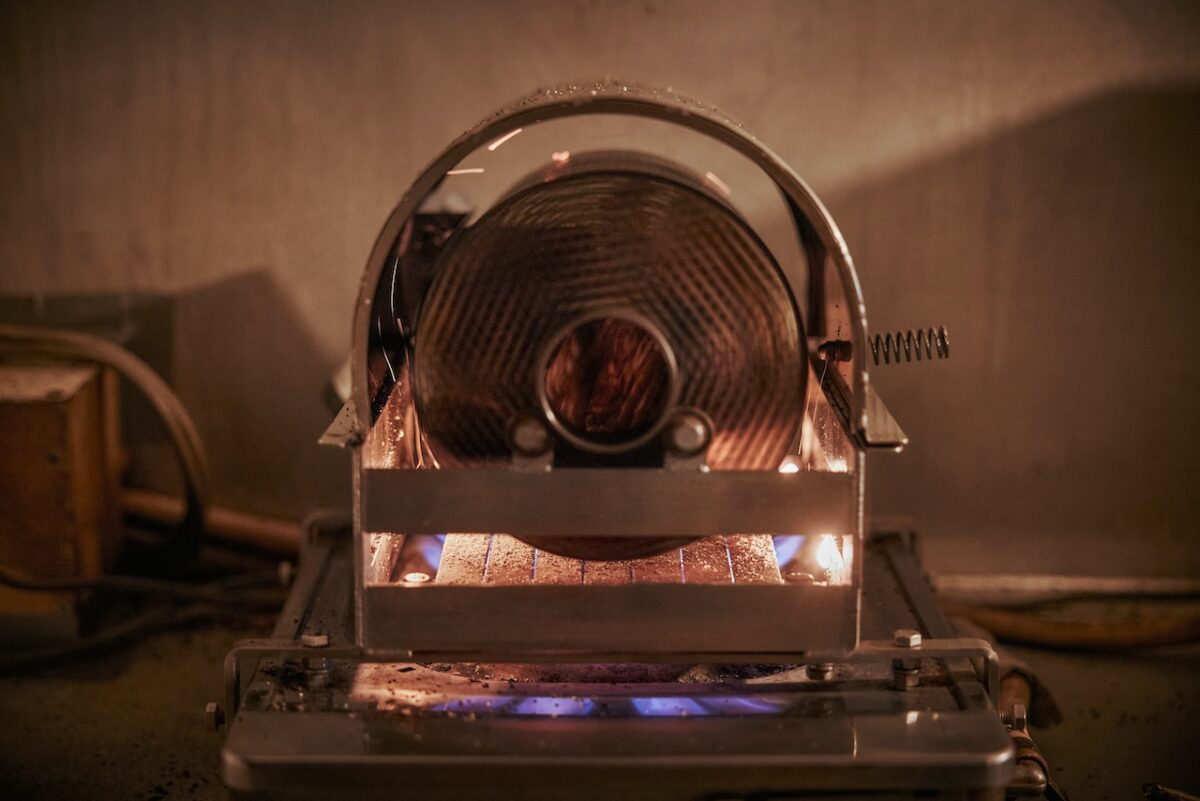
“We were confident that we could broaden our possibilities if we adopted low-temperature roasting to take advantage of the delicate aroma, flavor, and sweetness it affords coffee. After we acquired the skills, we were able to produce the delicate aroma unique to low-temperature roasting. But on the other hand, we struggled to bring out the powerful aroma characteristic of Beans,” says Norie.
“The powerful aroma comes specifically from roasting small quantities over direct fire. Our customers who were accustomed to the aroma said, ‘It tastes good, but I prefer the usual one.’ We reviewed the flavor-making processes unique to Beans for all green coffee beans so we could successfully fuse the two,” says Sayuri.
Some green coffee beans were better served by using our conventional roasting method, while others were better served by adopting low-temperature roasting. For example, for mocha, which has a powerful and gorgeous aroma but also the downside of an unpleasant aftertaste, the aftertaste became clearer while retaining the aromatic appeal to the fullest. Thanks to low-temperature roasting, which minimizes the stress on beans, coffee turned out with longer-lasting aromas. “We have a new method now,” says Norie.
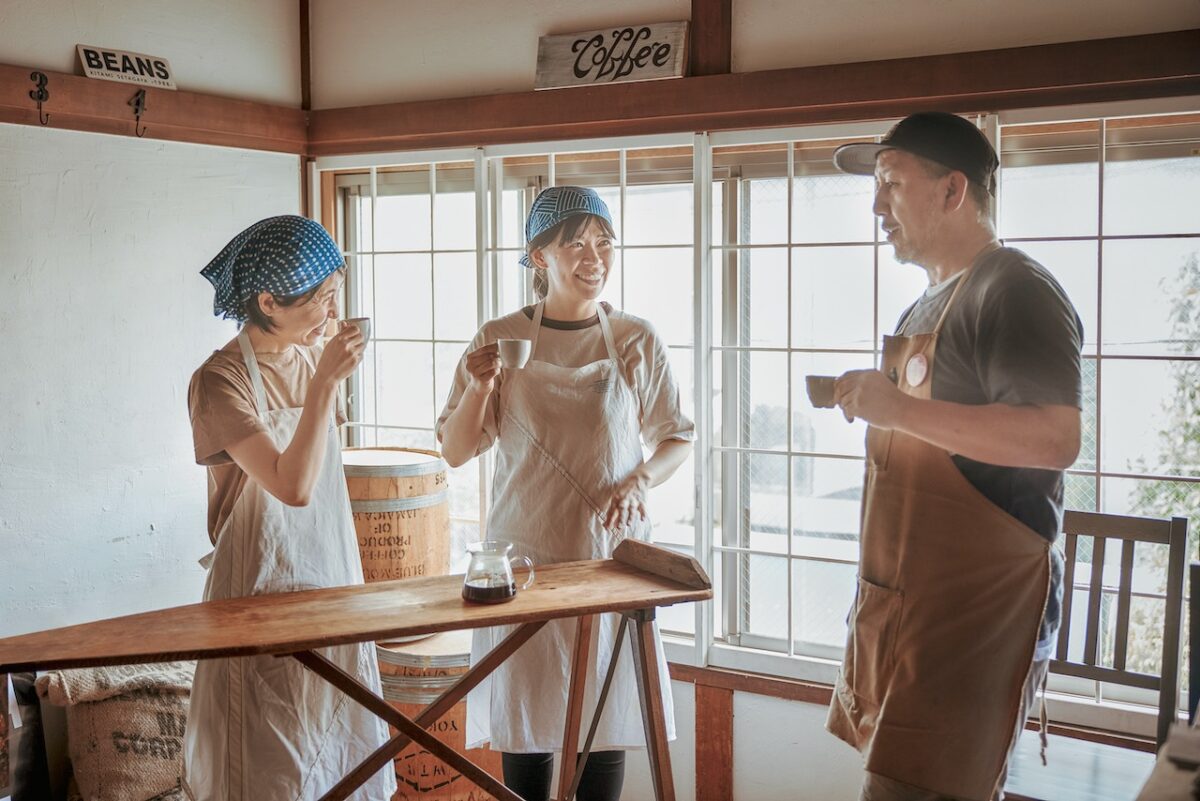
Having similar tastes, the three of them work in perfect harmony. If they were a car, Sayuri would be the engine as she is good at planning and getting things done; Miyashita the tire as he is a non-stop behind-the-scenes supporter; and Norie the steering wheel as she guides while keeping the balance. They thought about increasing the number of staff in order to expand the shop, but they came to the conclusion that it would be better to keep the three of them together to maintain quality. They say they want to look for the next generation of talent for Beans.
“We’re invaluable to each other as we’ve spent decades together and we can work toward one goal with the same motivation. We’re all opinionated so we can get into fights. But we can stand without falling down because we can collide with each other with equal strength, just like Oshikura Manju (a Japanese game played by pressing against each other’s backs). We are lucky to have a place where we can speak our minds and laugh with each other every day,” says Norie.
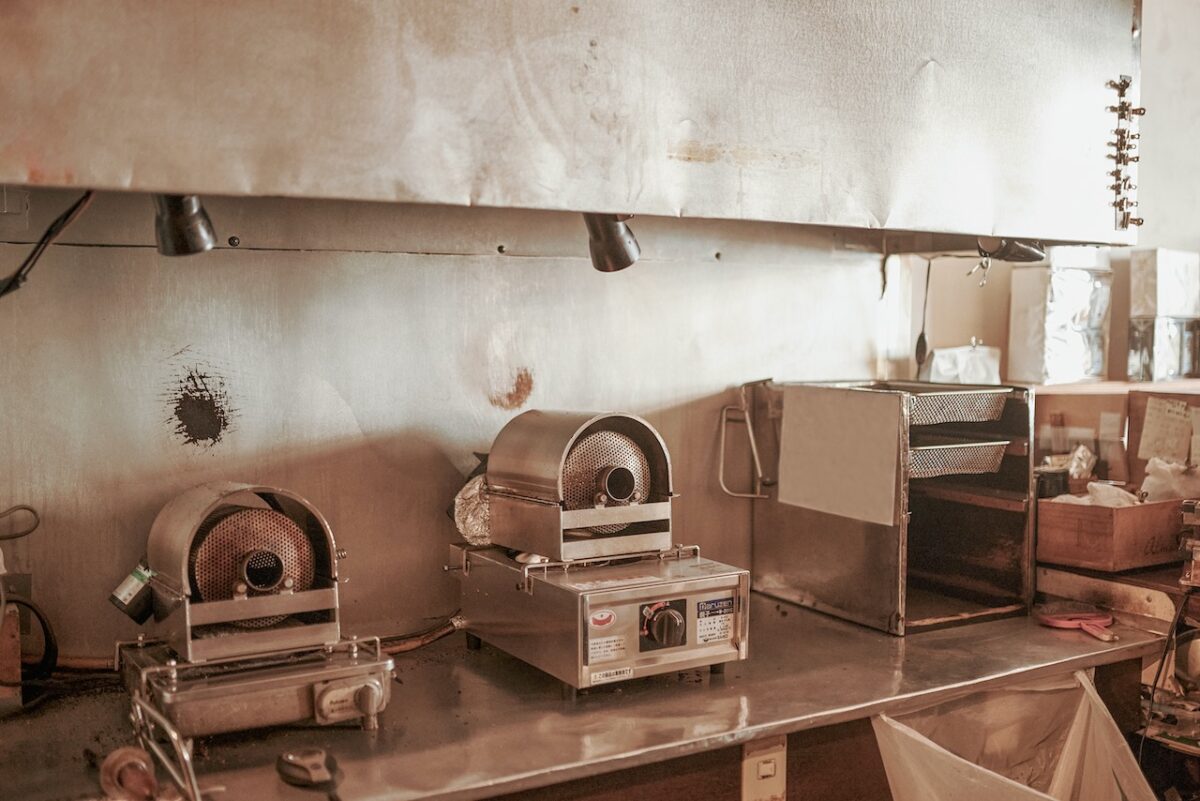
More important thing than efficiency
The three of them are not the only ones who continue to support Beans. Their original small coffee roaster that handles custom roasting is also an essential part of Beans. The maximum amount of green coffee beans that can be roasted at once is 600 g, which is less than a tenth of a large coffee roaster’s capacity. The small coffee roaster could even be considered a sample roaster.
“We regularly compare coffees roasted by our small coffee roaster and the ones roasted by famous manufacturers’ roasters. Often, we find unique aromas that come from our small roaster. I believe that there are some aromas that can’t be extracted when roasting in large batches,” says Sayuri.
However, Beans’ small coffee roaster can be temperamental. The kiln is small and has low heat retention, making it sensitive to external factors such as the wind from an air conditioner or the outside air when the door is opened. Strict control is required to adjust the heat level according to the input temperature and the amount of beans to be roasted. Above all, roasting for each order sacrifices efficiency.
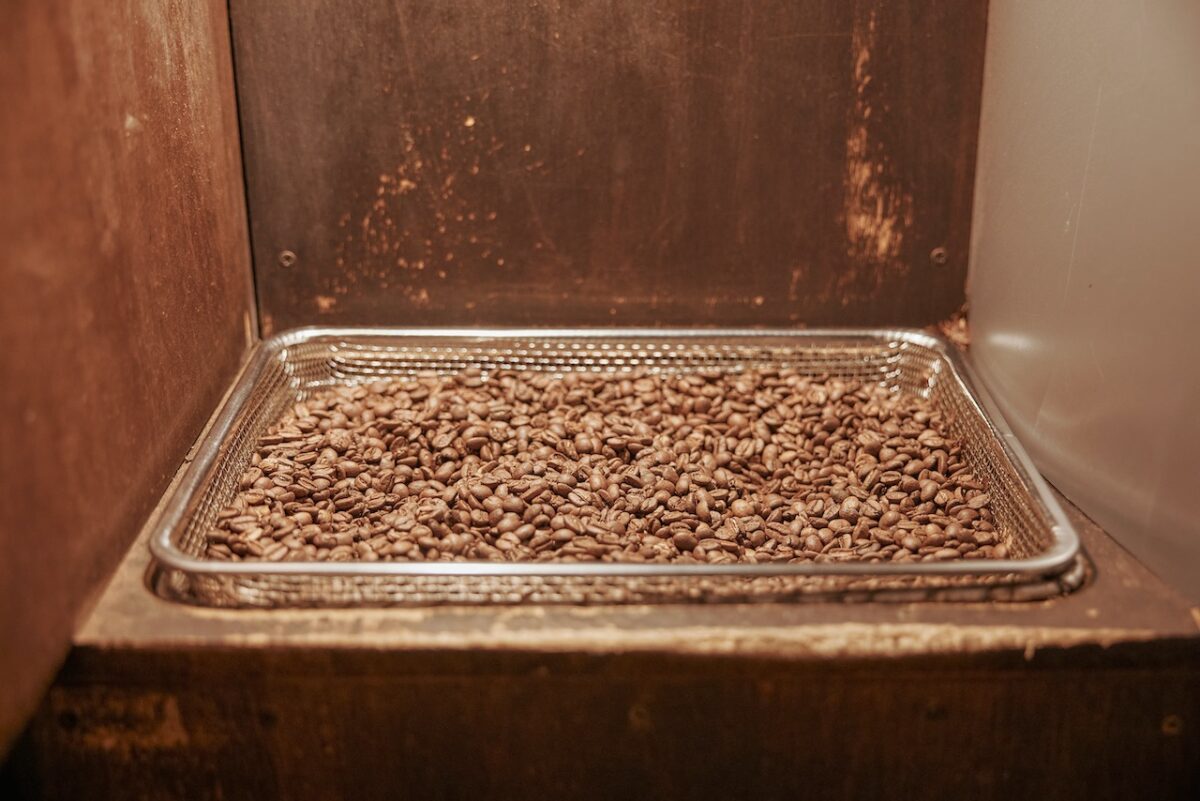
“One order takes up 10 minutes on the coffee roaster, and the more types of beans and roasting profiles you have, the more times you roast. It’s like I’m busy roasting all day long, but I can’t give up this style. I’d like to live up to the expectations of our customers even if it takes time, because they also find value in having us roast just for them. Roasting with our small coffee roaster while thinking of the customer’s face, is almost like cooking for my own family,” says Sayuri.
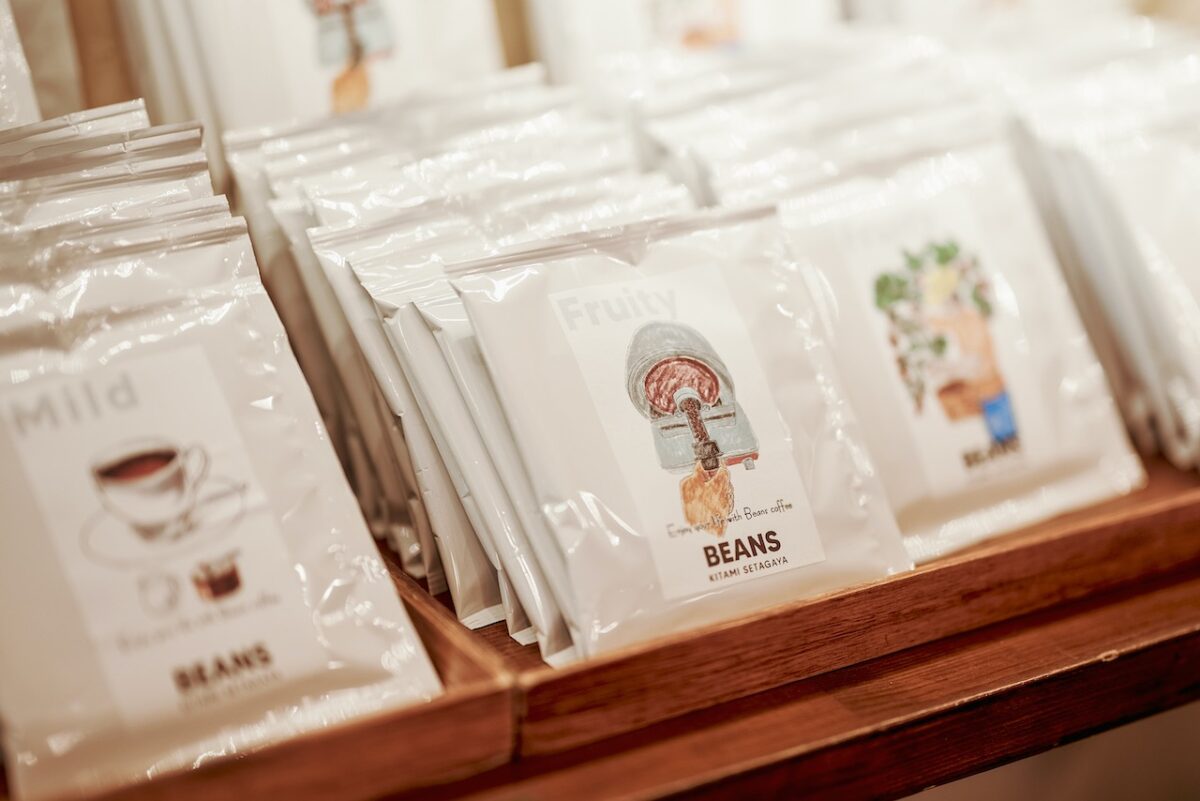
Roasting is not the only thing to which the three of them devote a great deal of time and care. They do everything themselves, from selecting origins suitable for their small roaster, negotiating with coffee curators and ordering samples, to cupping, roasting, handpicking, design, customer service, and sales.
“We all share the feeling of loving our daughters and sons, thinking about what kind of clothes we should dress them in and what kind of aroma and taste we should give them. It’s all for making coffee beans that can please our customers,” says Norie.
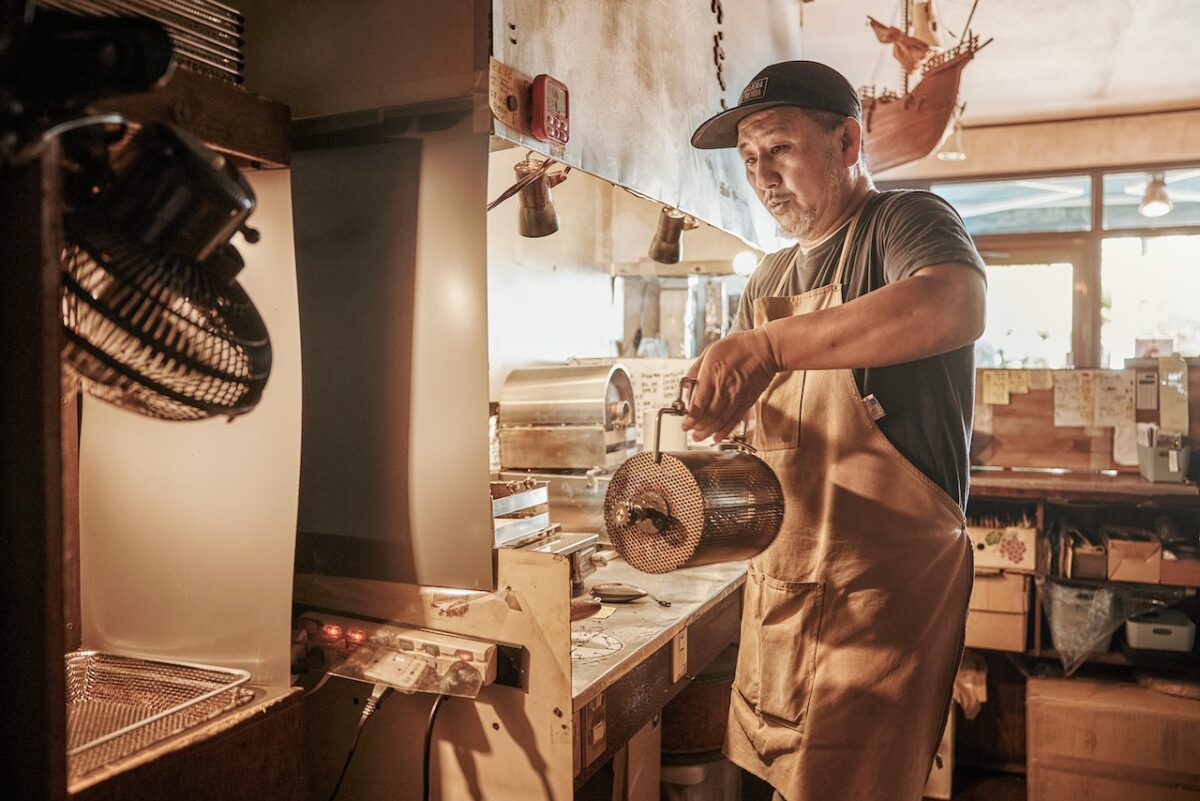
Striving to keep the shop going
The three of them have been pushing forward while sticking to what they want to do. Even now, Miyashita, who is on the cusp of 60 years old, continues to take on new challenges, such as launching his own private brand, ‘NUBE VIAJERA KOFFEE TIENDA’ and opening shops at events under the auspices of Beans. No matter how many years have passed, his passion for coffee has never run out.
“Our current goal is to develop a new coffee roaster. We want to overcome the disadvantages of our small coffee roaster, which is sensitive to external factors, by making it possible to handle 1 kg or 2 kg while maintaining flavor. We’ve been getting more wholesale orders, so we’d like to install several new coffee roasters and expand our roasting space,” says Norie.
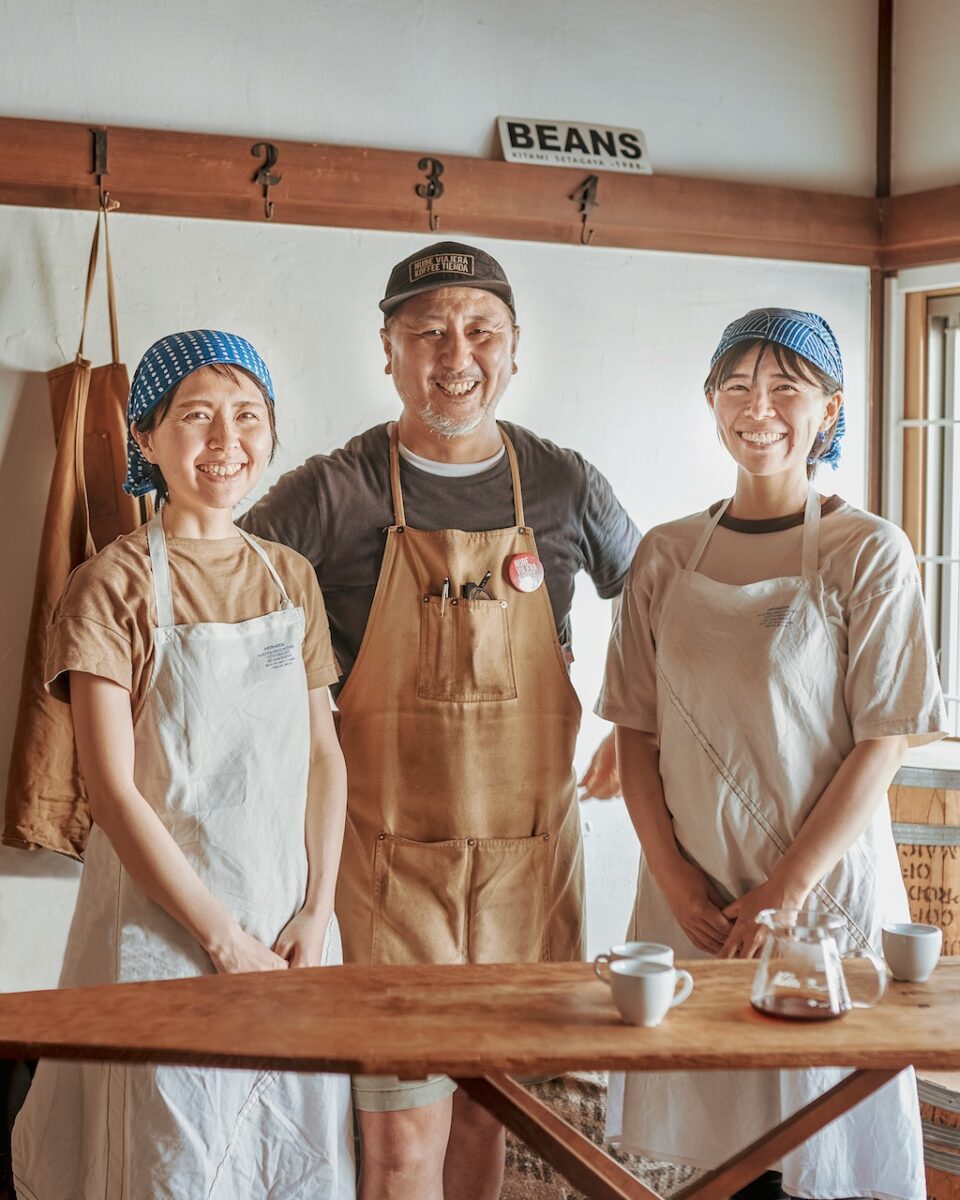
The three of them continue to evolve, but they all have the unchanging belief in their hearts to preserve Beans-ness.
“When we started low-temperature roasting, I gave a sample to one of our regular customers. Then he told me, ‘You don’t need to do that. I trust the taste of Beans, so please don’t ask me to evaluate the taste.’ I was so happy that I almost cried,” says Sayuri.
The relationships they have built with personalized attention through custom roasting have a warmth that goes beyond that of a business-and-client relationship.
“I was overcome with emotion when a customer who had been coming to our shop since it opened told me, ‘I’ll put your beans in my casket.’ The customer isn’t the type of person to joke around, so I realized how truly the customer loves our coffee,” says Miyashita.
The way Beans operates teaches us that there is abundance in inefficiency. The inimitable shop, which these three irreplaceable people have single-mindedly continued to preserve, will surely continue to be filled with powerful aroma and laughter in the future.
Originally written in Japanese by Mieko Karube
Edited by Tatsuya Nakamichi
Photos by Kenichi Aikawa
Translated by Tomohiko Nakamura (KARIS Translation Services)

MY FAVORITE COFFEE
Norie and Sayuri: Nothing beats the time when we’re finally able to make a blend beyond our ideal after making many prototypes. Moments like that fill our hearts with the excitement of new discovery and a sense of accomplishment that out of countless possible combinations, we’ve finally found the perfect one. That’s when we feel the desire to serve it to our customers as soon as possible. (Norie and Sayuri)
Nobuto: The best coffee I’ve ever had was when I climbed all the way up a mountain on a touring bike with friends and had a cup of mocha at the summit. It was at the height of summer, and I was so thirsty. But somehow the hot and bitter mocha tasted so good that I remember it to this day.

Beans Kitami
- [Open]
- 9:00~18:00(Roasting L.O.17:30)